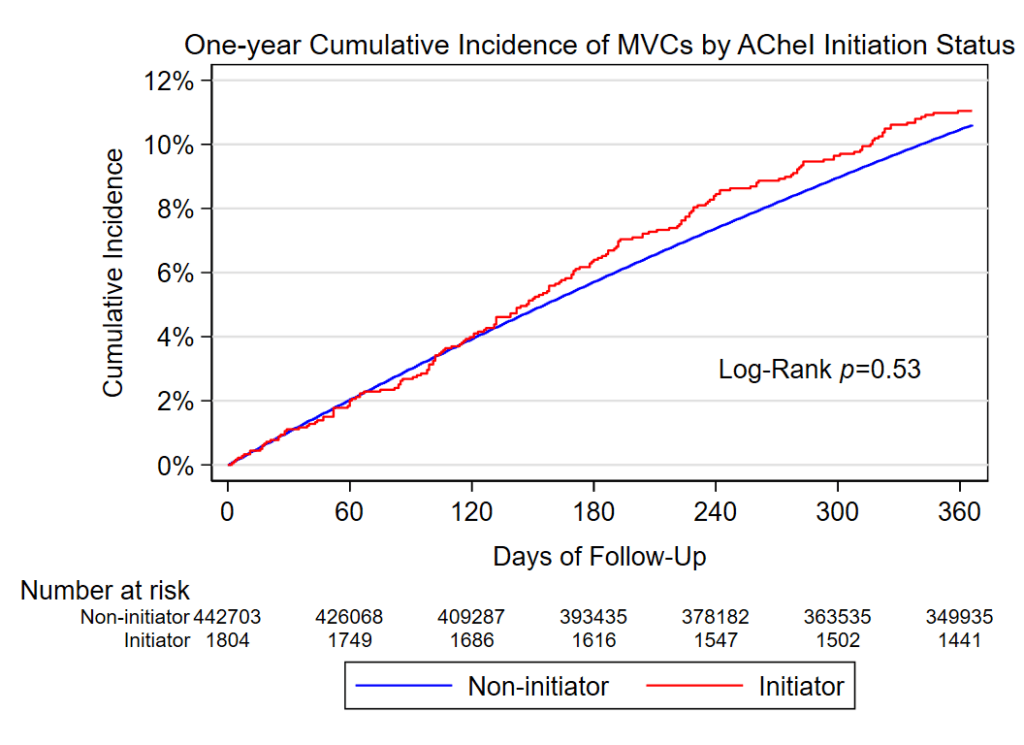Pharmacoepidemiology
Motor Vehicle Crash Risk Among Adults With Alzheimer’s Disease Following Acetylcholinesterase Inhibitor Initiation: A Target Trial Emulation Fiona Bhondoekhan* Fiona Bhondoekhan Andrew R. Zullo Brian R. Ott Melissa Pfeiffer Seth A. Margolis Marzan A. Khan Allison E. Curry Nina Joyce
Background: Acetylcholinesterase inhibitors (ACheIs) improve cognitive symptoms/delay progression in mild-to-moderate Alzheimer’s disease (AD). Their impact on motor vehicle crashes (MVCs) has not been evaluated, despite AD causing attention, perception, and executive function deficits which threaten safe driving. We compared the one-year crash risk in adults with mild-to-moderate AD who initiated ACheIs vs. those who did not.
Methods: We defined a target trial using New Jersey drivers’ licensing and police-reported crash data linked to Medicare claims and performed 470 sequential emulations, each starting on a consecutive calendar week from January 1, 2008-January 1, 2017 (unit of analysis: person in a trial). At the start of each week, we identified ACheIs initiators and non-initiators among adults aged ≥66 years with mild-to-moderate AD and an active driver’s license. We included ACheIs (donepezil, galantamine, rivastigmine, or tacrine) initiated within seven days after a ≥97-day washout. Follow-up lasted one year or until MVC, death, or loss to follow-up, whichever occurred first. We computed one-year cumulative incidence of MVCs using Kaplan-Meier curves.
Results: We identified 444,507 person-trials, of which 1,804 (0.4%) initiated ACheIs. Initiators were more often Hispanic (6.5% vs. 5.2%) and female (54.9% vs. 52.1%) than non-initiators, and they had more preventive healthcare visits (≥3 visits: 19.6% vs. 18.8%). Non-initiators had higher comorbidity scores (mean [SD]: 4.6 [3.3] vs. 3.9 [3.0]) and more hospitalizations (49.2% vs. 36.0%). We observed 191 (10.6%) initiators and 44,376 (10.0%) non-initiators with an MVC (Figure). More non-initiators died (7.3% vs. 6.4%) and were lost to follow-up (6.4% vs. 5.3%).
Conclusion: Our findings suggest no significant differences in one-year crash risk by ACheI initiation status. Ongoing analyses will account for baseline covariate differences, censoring, and potential immortal time bias to refine our estimates of crash risk for adults with AD treated with ACheIs.

